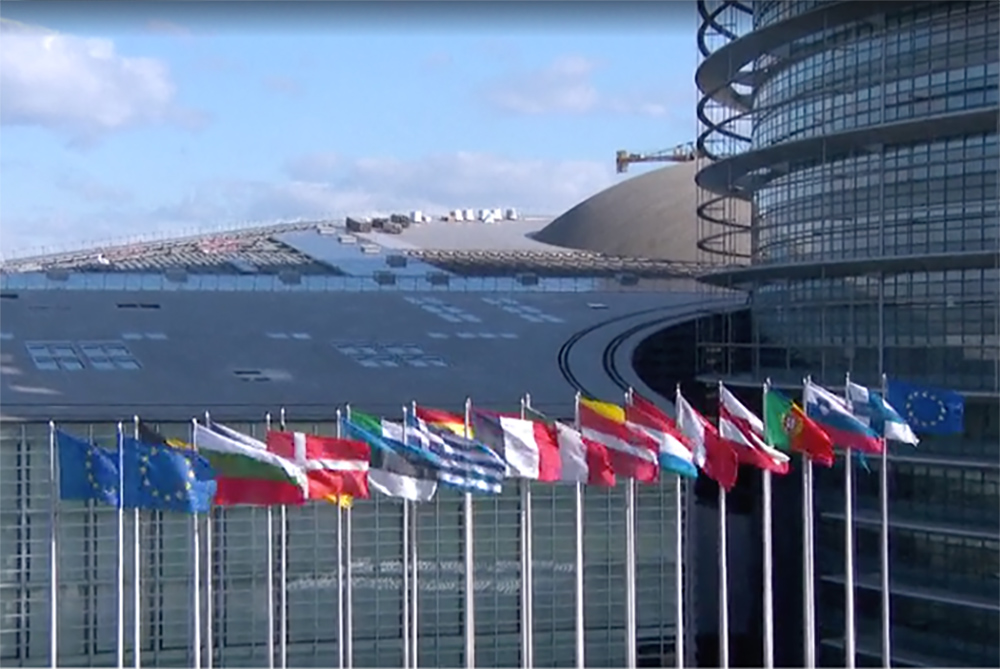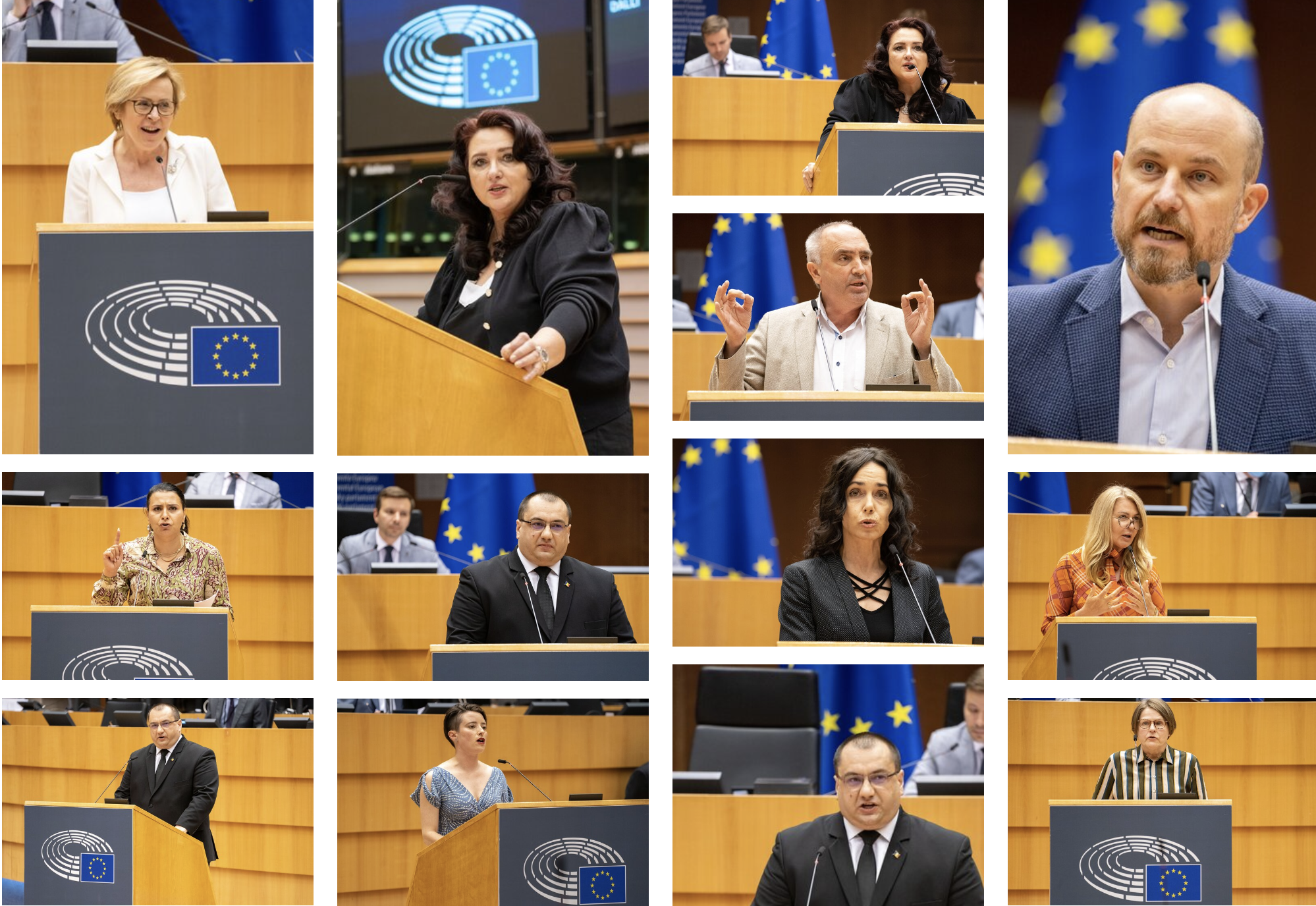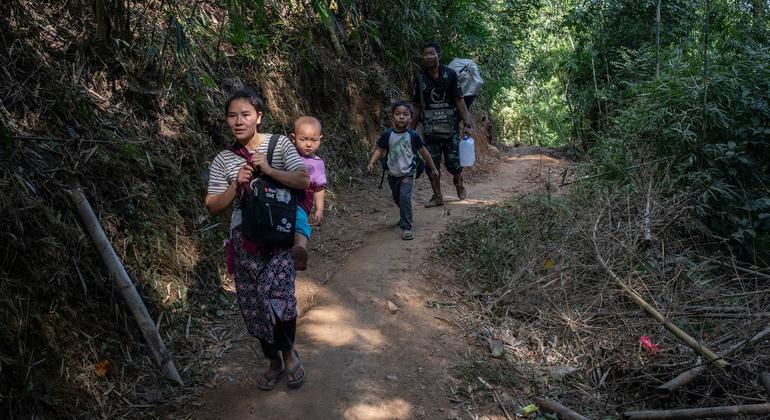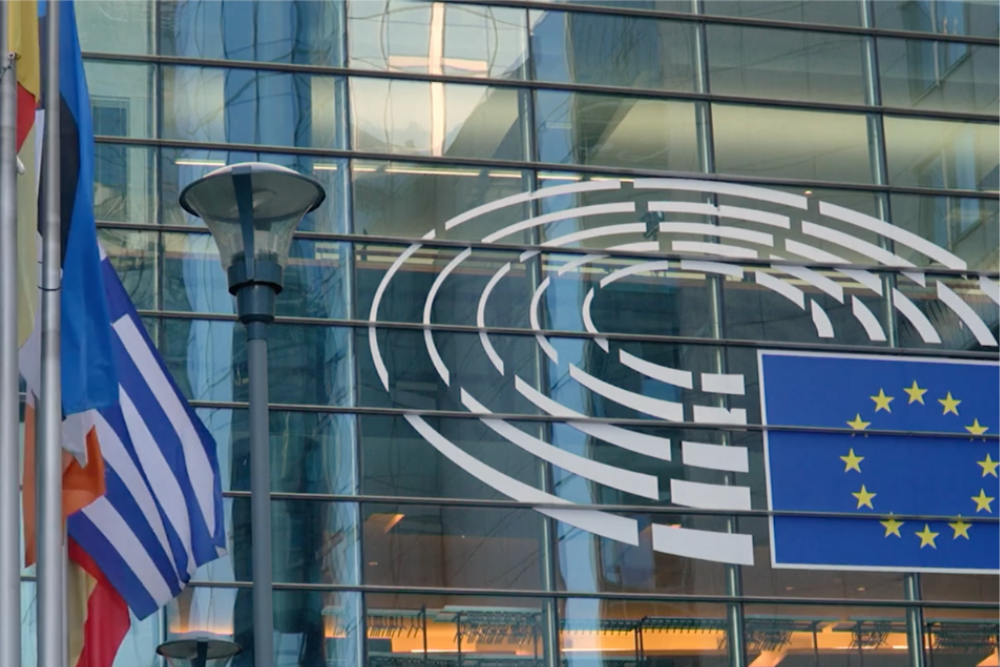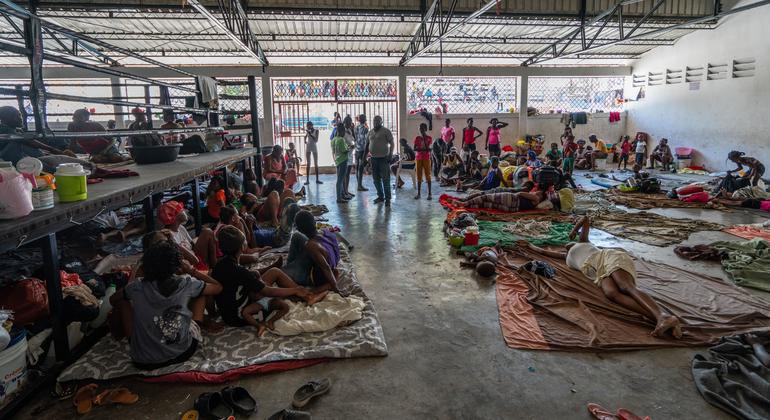The expansion of fighting throughout the country has deprived communities of basic needs and access to essential services and has had a devastating impact on human rights and fundamental freedoms, said Khalid Khiari, a UN Assistant Secretary-General whose portfolio straddles political and peacebuilding affairs as well as peace operations.
The open briefing marked the first time the Council has met on Myanmar since the military seized power from the democratically elected government on 1 February 2021, although members adopted a resolution on the crisis in December 2022.
UN Secretary-General António Guterres has consistently called for the release of President Win Myint, State Counsellor Aung San Suu Kyi and others who remain in detention.
Concern for the Rohingya community
Mr. Khiari said that amid reports of indiscriminate aerial bombardments by the Myanmar Armed Forces and artillery shelling by various parties, the civilian toll keeps rising.
He reported on the situation in Rakhine state, the poorest region in mainly Buddhist Myanmar and home to the Rohingya, a predominantly Muslim ethnic community who are stateless. More than one million members have escaped to Bangladesh following waves of persecution.
In Rakhine, fighting between the Myanmar military and the Arakan Army, a separatist group, has reached an unprecedented level of violence, compounding pre-existing vulnerabilities, he said.
The Arakan Army has reportedly gained territorial control over most of the centre and seeks to expand to the north, where many Rohingya remain.
Address root causes
“Addressing the root causes of the Rohingya crisis will be essential to establish a sustainable pathway out of the current crisis. The failure to do so and continued impunity will only keep fuelling Myanmar’s vicious cycle of violence,” he said.
Mr. Khiari also highlighted the alarming surge in Rohingya refugees who are dying or going missing while taking risky boat journeys in the Andaman Sea and the Bay of Bengal.
He said any solution to the current crisis requires conditions that permit the people of Myanmar to exercise their human rights freely and peacefully, and an end to the military’s campaign of violence and political repression is a vital step.
“In this respect, the Secretary-General has highlighted concern about the military’s intention to move ahead with elections amid intensifying conflict and human rights violations across the country,” he added.
Regional impacts
Turning to the region, Mr. Khiari said Myanmar’s crisis continues to spillover as conflicts in key border areas have weakened transnational security and the breakdown in the rule of law has allowed illicit economies to thrive.
Myanmar is now an epicentre of methamphetamine and opium production alongside a rapid expansion of global cyberscam operations, particularly in border areas.
“With scarce livelihood opportunities, criminal networks continue to prey on the increasingly vulnerable population,” he said. “What began as a regional crime threat in Southeast Asia is now a rampant human trafficking and illicit trade crisis with global implications.”
Step up support
Mr. Khiari upheld the UN’s commitment to staying and delivering in solidarity with the people of Myanmar.
Stressing the need for greater international unity and support, he said the UN will continue to work in complement with the regional bloc, ASEAN, and actively engage with all stakeholders.
“As the prolonged crisis deepens, the Secretary-General continues to call for a unified international response and encourages Member States, particularly neighbouring countries, to leverage their influence to open up humanitarian channels in line with international principles, end the violence and seek a comprehensive political solution that leads to an inclusive and peaceful future for Myanmar,” he said.
Displacement and fear
The humanitarian impacts of the crisis are significant and deeply concerning, Council members heard.
Lise Doughten of the UN humanitarian affairs office, OCHA, said some 2.8 million people in Myanmar are now displaced, 90 per cent since the military takeover.
People “are living in daily fear for their lives”, especially since a national law on mandatory conscription became effective earlier this year. Their ability to access essential goods and services and to cope is stretched to its limit.
Millions going hungry
Nearly 12.9 million people, roughly a quarter of the population, are facing food insecurity. Basic medicines are running out, the health system is in turmoil and education has been severely interrupted. Around one third of all school-aged children are currently out of the classroom.
The crisis is disproportionately impacting women and girls, almost 9.7 million of whom are in need of humanitarian assistance, with the escalating violence increasing their vulnerability and exposure to trafficking and gender-based violence.
No time to wait
Humanitarians estimate that some 18.6 million people across Myanmar will need assistance this year, a nearly 20-fold increase since February 2021.
Ms. Doughten called for increased funding to support their operations, safe and unimpeded access to people in need and safe conditions for aid workers.
“Intensified armed conflict, administrative restrictions and violence against aid workers all remain key barriers that are limiting humanitarian assistance from reaching vulnerable people,” she said.
She warned that as the conflict continues to escalate, humanitarian needs intensify, and with the monsoon season approaching, time is of the essence for the people of Myanmar.
“They cannot afford for us to forget; they cannot afford to wait,” she said. “They need the support of the international community now to help them survive in this time of fear and turmoil.”




